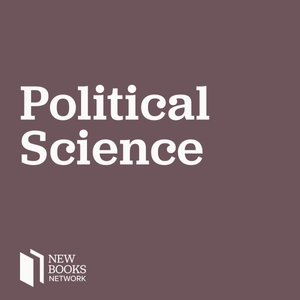
Patrick Eisenlohr, "Sounding Islam: Voice, Media, and Sonic Atmospheres in an Indian Ocean World" (U California Press, 2018)
01/02/19 • 40 min
Previous Episode

Till Mostowlansky, "Azan on the Moon: Entangling Modernity Along Tajikistan’s Pamir Highway" (U Pittsburgh Press, 2017)
In eastern Tajikistan, the Trans-Pamir Highway flows through the mountains creating a lunar-like landscape. In his latest work, Azan on the Moon: Entangling Modernity Along Tajikistan’s Pamir Highway (University of Pittsburgh Press, 2017), Dr. Till Mostowlansky explores the lives of individuals who live alongside the highway. From the myth of Neil Armstrong hearing the azan while landing on the moon to fascinating interviews, Azan on the Moon uses rich ethnographic sources to illustrate how modernity is both enforced and challenged in the Pamir region. Mostowlanksy complicates our understanding of modernity as individuals who once were on the forefront of the Soviet modernizing project during the building of the Pamir highway now navigate life on the margins of the Tajik state. His work demonstrates how marginality and modernity are not mutually exclusive, but rather, are interconnected in the Pamir mountains. Till Mostowlansky is an Ambizione Research Fellow at the Department of Anthropology and Sociology of the Graduate Institute of International and Development Studies in Geneva. Kimberly St. Julian-Varnon is a History Instructor at Lee College. Learn more about your ad choices. Visit megaphone.fm/adchoices Support our show by becoming a premium member! https://newbooksnetwork.supportingcast.fm/anthropology
Next Episode

Denis Provencher, "Queer Maghrebi French: Language, Temporalities, Transfiliations" (Liverpool UP, 2017)
Sometimes a book can take inspiration from a (not so) simple map. At the end of his previous book, Queer French: Globalization, Language, and Sexual Citizenship (Routledge, 2007), Denis Provencher discusses a map of “gay Paris” drawn by Samir, one of his French interlocutors of North African descent. Samir’s queer urban landscape left out most of the Marais, an area typically considered a center of gay life in the French capital. A follow-up to that 2007 study in some ways, Queer Maghrebi French: Language, Temporalities, Transfiliations (Liverpool University Press, 2017) is also much more. This new book explores the biographies, experiences, cultural work, and activisms of men of Maghrebi origin, men who were either born in or immigrants to contemporary France. Exploring the workings of culture, religion, community, and kinship, the book engages and intervenes in the fields of queer theory, gender studies, ethnography, linguistics, and cultural studies. Combining analysis of a variety of cultural texts—including art, literature, photography, film, and performance—with ethnographic data drawn from multiple interviews, QMF interrogates diasporic identity, language, mobility, time, and space. Over the course of the book’s several chapters, Provencher considers the lives and work of the artist and photographer 2Fik; the queer activist, scholar, and imam Ludovic-Mohamed Zahed; the novelist Abdellah Taia; and the filmmaker and screenwriter Mehdi Ben Attia. The final chapter of the book focuses on three anonymous working and middle-class men Provencher interviewed over the course of the project. In addition to highlighting language, temporality, and transfiliation, the book is attentive throughout to the role of technology—its screens and networks—in enabling and shaping different forms of community and (self-)representation. Interdisciplinary in its approach, the book will be of great interest to readers across the fields of LGBTQ, Maghrebi French, and cultural studies. Roxanne Panchasi is an Associate Professor in the Department of History at Simon Fraser University. Her current research focuses on the culture and politics of nuclear weapons and testing in France and its empire since 1945. She lives and reads in Vancouver, Canada. If you have a recent title to suggest for the podcast, please send an email to: [email protected]. *The music that opens and closes the podcast is an instrumental version of “Creatures,” a song written by Vancouver artist/musician Casey Wei (performing as “hazy”). To hear more, please visit https://agonyklub.com/. Learn more about your ad choices. Visit megaphone.fm/adchoices Support our show by becoming a premium member! https://newbooksnetwork.supportingcast.fm/anthropology
If you like this episode you’ll love
Episode Comments
Generate a badge
Get a badge for your website that links back to this episode
<a href="https://goodpods.com/podcasts/new-books-in-anthropology-10586/patrick-eisenlohr-sounding-islam-voice-media-and-sonic-atmospheres-in-6333939"> <img src="https://storage.googleapis.com/goodpods-images-bucket/badges/generic-badge-1.svg" alt="listen to patrick eisenlohr, "sounding islam: voice, media, and sonic atmospheres in an indian ocean world" (u california press, 2018) on goodpods" style="width: 225px" /> </a>
Copy




